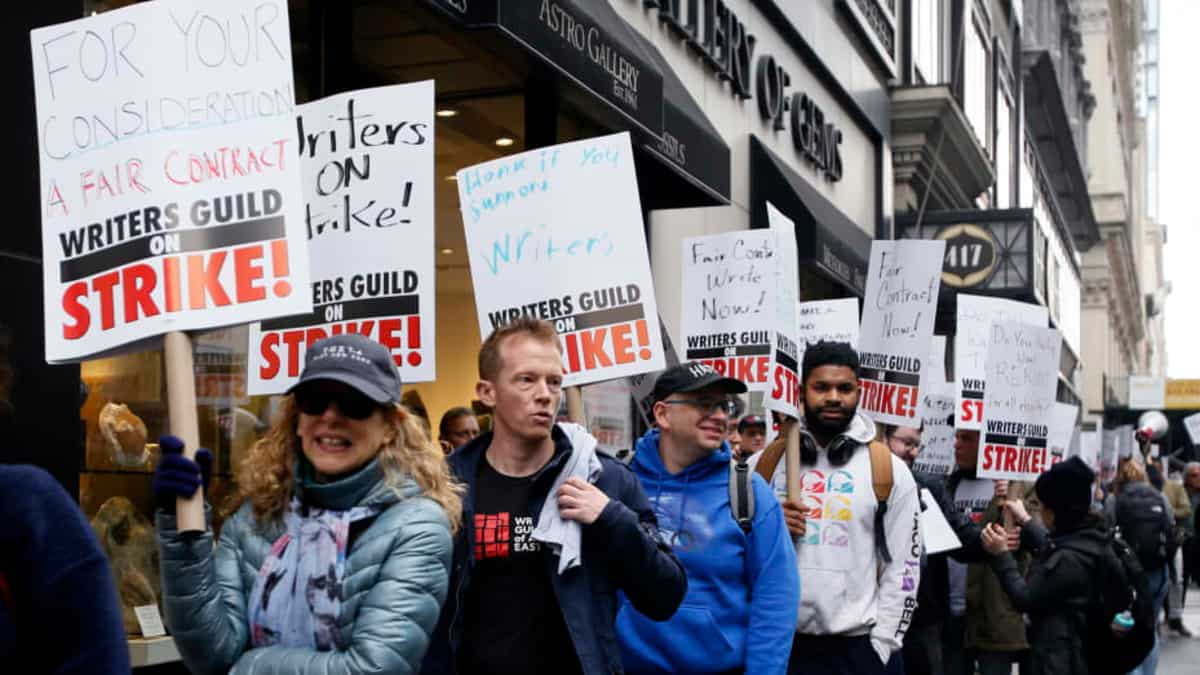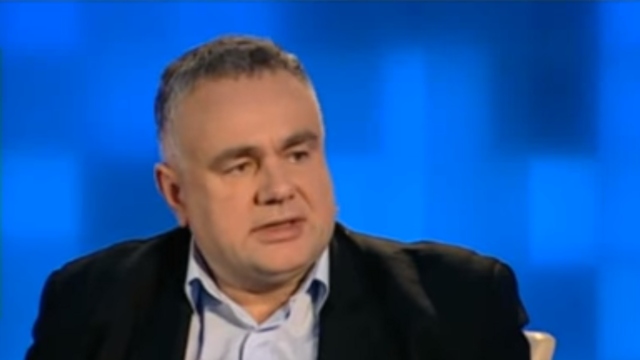Hollywood Shut Down: Actors And Writers On Strike

Table of Contents
The Core Issues Fueling the Hollywood Strike
The Hollywood strike isn't simply about money; it's about fairness, creative control, and the future of work in the digital age. Several key issues have driven actors and writers to walk off the set.
Fair Wages and Residuals in the Streaming Era
The shift to streaming has dramatically altered the compensation landscape for actors and writers. Traditional residuals, once a significant portion of income, have plummeted as streaming services prioritize subscriber numbers over paying out revenue shares fairly. The strike aims to renegotiate fair compensation models that reflect the value of their work in the digital age.
- Diminished Residuals: The move to streaming has significantly reduced or eliminated residuals for many actors and writers, impacting their long-term financial security.
- Streaming Revenue Sharing: The unions are demanding a fairer share of the massive profits generated by streaming platforms, reflecting the significant viewership their work attracts. Specific demands include a percentage of subscription fees based on viewership data.
- Transparency in Streaming Metrics: Actors and writers are demanding greater transparency from streaming services regarding viewership numbers and revenue generated from their content.
Concerns Over AI and its Impact on Creative Work
The burgeoning use of artificial intelligence (AI) in scriptwriting and performance generation is a major point of contention. Both writers and actors fear AI could eventually replace human creatives entirely, leading to job losses and a devaluation of their skills.
- AI-Generated Scripts: The potential for AI to write scripts and storylines threatens writers' jobs and creative control. The unions are seeking safeguards to prevent the unchecked use of AI in script creation.
- AI-Generated Performances: The use of AI to generate realistic performances raises concerns about the future of acting and the potential for de-skilling the profession. The unions are advocating for strict regulations on the use of AI in generating performances.
- Protecting Human Creativity: The core demand is to protect human creativity and ensure that AI is used as a tool to enhance, not replace, human artistry. Specific demands include limitations on the use of AI and stipulations for human oversight in its implementation.
Working Conditions and Power Dynamics
The strike also addresses long-standing concerns about working conditions and the power imbalance between studios and creatives.
- Excessive Working Hours: Actors and writers frequently work excessively long hours, impacting their health and well-being. The unions are seeking improvements to working hours and mandated rest periods.
- Unfair Contracts: The strike aims to address perceived imbalances in power dynamics and negotiate fairer contracts that prioritize the well-being of creatives.
- Health and Safety Concerns: The unions are demanding improvements in health and safety protocols on set to ensure a safer working environment for all.
The Impact of the Hollywood Strike
The Hollywood strike's repercussions extend far beyond the picket lines, impacting the global economy and the creative landscape.
Economic Consequences
The strike has significant economic consequences:
- Studio Revenue Losses: Major studios are experiencing substantial losses in revenue due to the halt in production.
- Job Losses: The strike has led to widespread job losses across various sectors connected to film and television production, including crew members, caterers, and support staff.
- Local Economic Impact: Cities heavily reliant on film production are experiencing significant economic downturns.
- Delayed Releases: Numerous film and television projects have been delayed, impacting release schedules and box office projections.
Creative Implications
The creative implications of the strike are equally profound:
- Production Delays: Ongoing projects are indefinitely delayed, impacting the timelines of numerous productions.
- Award Season Disruptions: The strike threatens to disrupt upcoming award seasons and film festivals.
- Project Uncertainty: The future of projects currently in development hangs in the balance.
- Shifting Production Landscapes: The strike might accelerate the shift of production to countries with more favorable labor laws and less stringent regulations.
Potential Paths to Resolution of the Hollywood Strike
Reaching a resolution to the Hollywood strike requires substantial negotiation and compromise from all parties involved.
Negotiation Strategies and Key Players
- Union Leadership: The Writers Guild of America (WGA) and the Screen Actors Guild - American Federation of Television and Radio Artists (SAG-AFTRA) play crucial roles in negotiations.
- Studio Stance: The major studios and streaming platforms need to engage in good-faith negotiations to find mutually acceptable solutions.
- Mediation: The involvement of neutral mediators or arbitrators could facilitate a compromise.
- Historical Precedents: Analyzing past successful and unsuccessful Hollywood strikes provides valuable insights into potential strategies.
Possible Outcomes and Their Implications
Several scenarios are possible:
- Successful Negotiation: A mutually agreeable contract could restore production and bring stability to the industry.
- Prolonged Strike: An extended strike could lead to more significant economic losses and lasting damage to the industry.
- Compromise: A compromise may involve concessions from both sides, potentially setting precedents for future labor negotiations.
Conclusion:
The Hollywood strike, fueled by crucial concerns about fair compensation, the rise of AI, and improved working conditions, represents a turning point for the entertainment industry. The consequences of this Hollywood strike are far-reaching, affecting the livelihoods of creatives, the global economy, and the future of creative content. A successful resolution necessitates thoughtful negotiation and a willingness from all parties to address the underlying issues. Stay informed about the ongoing Hollywood strike developments and support the actors and writers as they fight for a more just and equitable future in the industry. Understanding the complexities of this Hollywood strike is crucial for anyone invested in the future of film and television.

Featured Posts
-
 The Future Of Xrp Assessing The Impact Of Etf Listings And Sec Regulatory Changes
May 02, 2025
The Future Of Xrp Assessing The Impact Of Etf Listings And Sec Regulatory Changes
May 02, 2025 -
 Voyage De 8000 Km Trois Jeunes Du Bocage Ornais Relevent Le Defi
May 02, 2025
Voyage De 8000 Km Trois Jeunes Du Bocage Ornais Relevent Le Defi
May 02, 2025 -
 Lottery Results Saturday April 12th Jackpot
May 02, 2025
Lottery Results Saturday April 12th Jackpot
May 02, 2025 -
 Fortnite Lara Crofts Return Confirmed By Recent Leak
May 02, 2025
Fortnite Lara Crofts Return Confirmed By Recent Leak
May 02, 2025 -
 Sakiewicz O Solidarnosci I Republice Znaczenie Wyjatkowych Wyroznien
May 02, 2025
Sakiewicz O Solidarnosci I Republice Znaczenie Wyjatkowych Wyroznien
May 02, 2025
